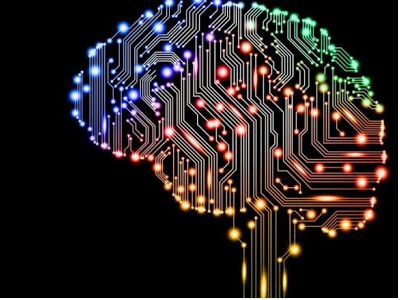- The Executive Council has approved Catalonia’s artificial intelligence strategy: Catalonia.AI
- The strategy includes the creation of the Center for Innovation in Data Tech and Artificial Intelligence (CIDAI), which will serve companies and institutions and promote AI adoption in Catalonia
- AI is one of the advanced digital technologies that will have the biggest economic and social impact in the coming years. It is estimated that it will add $15 trillion to global GDP by 2030
From today, Catalonia has its own strategic plan on artificial intelligence (AI). The strategy, a groundbreaking initiative in Spain, is aligned with the strategic priorities of the European Commission in this area. Catalonia.AI, the Artificial Intelligence Strategy of Catalonia, was approved today by the Executive Council.
Catalonia.AI is a cross-cutting, multi-sectoral, people-centred strategy that seeks to harness the full potential of artificial intelligence to benefit society and make Catalonia a global technology hub in AI.
The strategy will prioritise areas such as health, education, mobility, sustainability, the productive economy, the agri-food sector and public services. It will be rolled out with an action plan that revolves around six key pillars: ecosystem; research and innovation; talent, infrastructure and data; AI adoption; and ethics and society.
The Catalonia.AI strategy is being launched with a budget of €10 million for the next three years, which will be used, among other things, to create the Catalonia.AI Alliance, the AI Research and Innovation Network, and the Ethics Observatory on Artificial Intelligence.
Another key initiative will be the launch of the Center for Innovation in Data Tech and Artificial Intelligence (CIDAI), the cornerstone of the strategy for promoting AI adoption in Catalonia. The CIDAI is a public-private partnership set up as a centre for networked innovation at the service of companies and institutions. The centre will have a budget of €3 million, €1.2 million of which (40% of the total) will be provided by the Government of Catalonia.
The launch of the CIDAI is supported by public authorities (the Government of Catalonia, through the Ministry for Digital Policy; and the Barcelona City Council, through Barcelona Activa), technology and research centres (Eurecat, the Barcelona Supercomputing Center – BSC, the Computer Vision Center – CVC, and i2CAT); and companies (Microsoft, Everis and SDG Group).
As an initiative focusing on Catalonia as a whole, the plan is for the CIDAI to bring other partners and collaborators on board.
The importance of a broad-based AI strategy for Catalonia
AI is one of the advanced digital technologies that will have the biggest economic and social impact in the coming years. It is estimated that it will add $15 trillion to global GDP by 2030. This economic growth will not be evenly distributed. Countries that prioritise technological development will capture a larger share, which will allow them to create more quality employment and improve the welfare of their citizens.
This is why many states around the world are focusing on this technology and adopting AI strategies. In April 2018, the European Commission adopted its own strategy in this area, which includes a coordinated plan prepared with Member States to foster the development and use of AI in Europe. The plan prioritises actions in four key areas: increasing investment, making more data available, fostering talent and ensuring trust in AI.
In this context, and within the framework of the strategy for making Catalonia an advanced digital nation and a global leader in this area, the Catalan government has developed its own specific strategies for disruptive technologies such as 5G, blockchain, and now artificial intelligence – all with the aim of harnessing the potential of these technologies to benefit Catalan society as a whole.
Thanks to its existing capabilities and potential, Catalonia is ideally positioned to lead the development and adoption of AI in southern Europe and become a global technology hub in this area. Catalonia has an internationally renowned scientific and academic community in the field of AI, with universities and research and technology centres that are among the best in Europe; top-notch scientific infrastructure, including the Barcelona Supercomputing Center (BSC); and a powerful ICT sector made up of 180 companies specialising in artificial intelligence that have a total annual turnover of €1.35 billion and employ 8,500 people.


